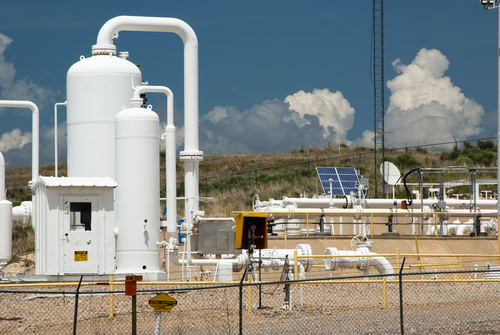
Marcellus Shale gas producers may soon see a new outlet for the region’s plentiful natural gas after the Federal Energy Regulatory Commission (FERC) granted Williams Companies permission to expand the capacity of its Transco pipeline in Pennsylvania and in neighboring New Jersey and Maryland.
The 4-0 ruling issued Jan 11 ran counter to an earlier position taken by New Jersey regulators who had deemed the project unnecessary due to potential environmental impacts and because the Garden State was already committed to using less fossil fuel such as gas in the coming years as part of its climate-change strategy.
The ruling will enable Williams and Transco to begin replacing eight current compressor stations with six new or upgraded compressor stations in Pennsylvania and New Jersey, which will increase shipping capacity by 829 million cubic feet per day while requiring less maintenance than the current stations.
“We are pleased that FERC has unanimously recognized the vital importance of a reliable energy supply to support growing energy demand at home and abroad,” said Robin Rorick, vice president of Midstream Policy at the American Petroleum Institute. “A modern U.S. infrastructure system with a transparent, timely and consistent permitting process is a bipartisan issue and is crucial to harnessing the power of American energy.”
The ruling specifically approved plans to add 22.3 miles of 30-inch diameter pipeline plus another 13.8 miles of 42-inch pipe in Pennsylvania along with one new compressor station in New Jersey and modifications to five existing stations in Pennsylvania, all of which will continue to run on gas power.
Williams said in a statement, “We look forward to continuing our work with regulators and other stakeholders on this critical project that will enhance existing energy infrastructure and increase much-needed access to clean and reliable for consumers in the Northeast, and particularly for our customers in New Jersey.”
The entire Northeast has been shaking off sticker shock in the form of stiff winter gas bills, which the energy industry says is primarily the result of pipeline constraints in the region. The obvious answer, producers say, is allowing the construction of additional capacity to tap into the Marcellus region’s ample gas supplies. The Transco expansion, known as the Regional Energy Access (REA) expansion project, consists primarily of upgrades to or total replacement of compressor stations along the existing pipeline in New Jersey as well as in Pennsylvania’s Luzerne, York, Chester and Monroe counties.
Among the various filings submitted in the FERC case were analyses by the New Jersey Board of Public Utilities (NJ BPU) and the state’s Division of Rate Counsel, both of which concluded that New Jersey’s gas supplies were presently adequate, and that expansion of Transco’s capacity would leave ratepayers holding the bag for the cost of a project that was in not needed in the long run. In addition, FERC made note in its ruling that while the REA project met environmental requirements, it would still result in an 11.8 percent increase in post-construction greenhouse gas emissions over 2019 plus a 1.2 percent increase in Pennsylvania.
“Clearly, there is no need for this project,” said Tom Gilbert, co-executive director of the New Jersey Conservation Foundation, told the NJ Spotlight. “This essentially is New Jersey footing the bill for a project that is not needed.”
The idea of dueling studies and other third-party filings affecting FERC’s deliberations in general was raised in the written ruling by individual commissioners who urged a level of uniformity in how much weight individual filings should be given in future cases, particularly when it comes to climate change and other environmental impacts that go beyond basic supply-and-demand questions.
FERC Commissioner Allison Clements wrote that the third-party material in the Transco case contained “certain shortcomings that further limit their usefulness for aiding our decision-making.”
“As more states adopt laws and policies like New Jersey’s, we should expect more frequent and active participation by states and their utility regulators in our certificate proceedings,” Clements said in her concurrence. “Rather than improvising case-by-case, we should determine as a matter of policy how to consider and weigh relevant state laws, programs, and administrative determinations in future certificate proceedings.”
FERC Commissioner James P. Danley said he did not find much in the NJ BPU filing that contradicted the conclusions by Williams and the gas shippers who were already committing to use the new capacity. “Even while admitted to the record, each of the third-party studies suffers certain shortcomings that further limit their usefulness for aiding our decision-making,” he said.
The REA project will no doubt provide a nice boost for Marcellus gas production and a break for Northeast utility consumers, but with many state regulatory agencies playng a larger role in climate-change strategies, increased standardization of how other pipeline projects are considered at FERC could provide an even greater long-term benefit for the energy industry.